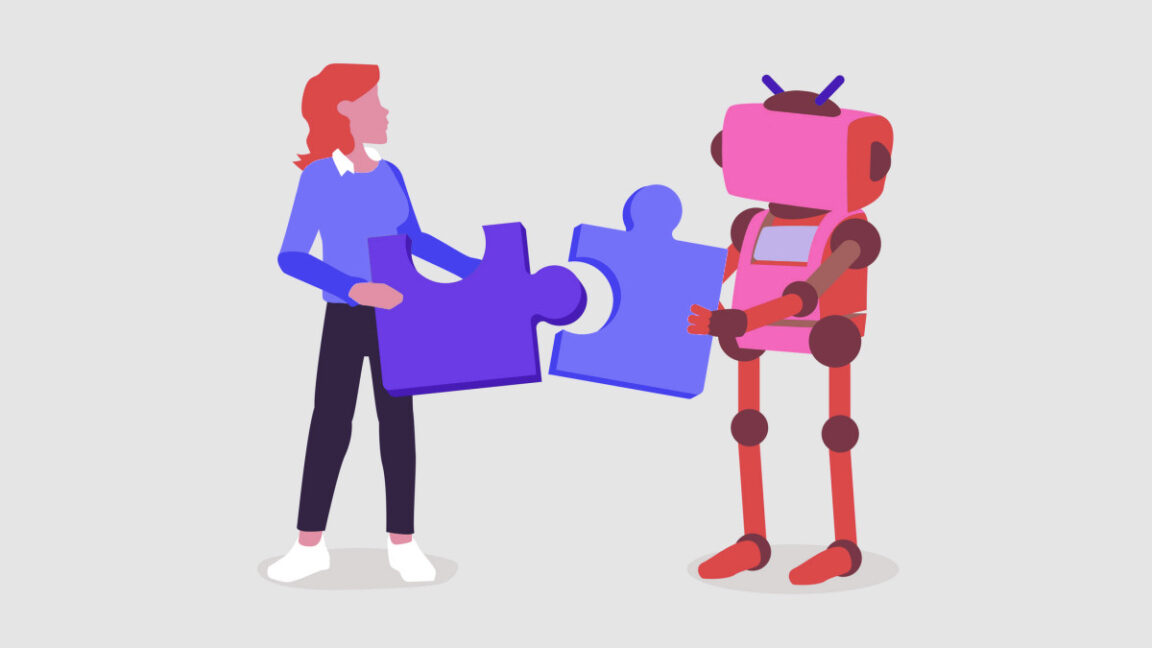
Credit: Arne Weitkaemper via Getty Images
On Tuesday, The Associated Press released results from a new AP-NORC poll showing that 60 percent of US adults have used AI to search for information, while only 37 percent of all Americans have used AI for work tasks. Meanwhile, younger Americans are adopting AI tools at much higher rates across multiple categories, including brainstorming, work tasks, and companionship.
The poll found AI companionship remains the least popular application overall, with just 16 percent of adults overall trying it—but the number jumps to a notable 25 percent among the under-30 crowd. AI companionship can have drawbacks that weren't reflected in the poll, such as excessive agreeability (called sycophancy) and mental health risks, like encouraging delusional thinking.
The poll of 1,437 adults conducted July 10–14 reveals telling generational divides in AI adoption. While 74 percent of adults under 30 use AI for information searches at least some of the time, only the aforementioned 60 percent of all adults have done so. For brainstorming applications, 62 percent of adults under 30 have used AI to come up with ideas, compared with just 20 percent of those 60 or older.
The findings suggest that despite years of tech industry promotion touting AI as a productivity revolution, most Americans' work lives remain untouched by AI assistants. Roughly one-third of survey respondents use AI for writing emails, creating or editing images, or entertainment. Only 26 percent report using AI for shopping.
Search remains AI's most common application, though the poll may undercount actual usage since Google automatically generates AI responses at the top of search results, and users may not always recognize when they're interacting with AI-powered features.
Users navigate AI with caution and courtesy
The poll captured how Americans are selectively embracing AI while maintaining skepticism about its limitations. To dig into the implications, The Associated Press interviewed several people for comments about the poll results. For example, the AP talked to Courtney Thayer, a 34-year-old audiologist in Des Moines who turns to ChatGPT when planning weekly meals. They also interviewed Sanaa Wilson, a 28-year-old Los Angeles-area data scientist who depends on AI tools for debugging code.
Wilson's relationship with AI has evolved over time, according to the AP interview. She experimented with ChatGPT for drafting emails before two concerns made her quit: perceptions about high energy consumption behind each query and worries about her own writing skills atrophying.
Wilson attributes some of the companionship usage of AI to the social isolation many in her generation experienced during the COVID-19 pandemic, though she has no personal interest in AI companions.
Even those uninterested in AI relationships sometimes hedge their bets. Thayer treats chatbots with careful courtesy, adding "please" and "thank you" to every request—a behavior that echoes concerns like Roko's basilisk, a thought experiment about a future AI model that might reward or punish people based on their past actions toward AI development.
"I mean, I am nice to it, just because I've watched movies, right?" she told The Associated Press. "So I'll say, 'Can you make me a meal plan, please?' And, 'Can you modify this, please?' And then I'll say, 'Thank you.'"

-
 C114 Communication Network
C114 Communication Network -
 Communication Home
Communication Home


